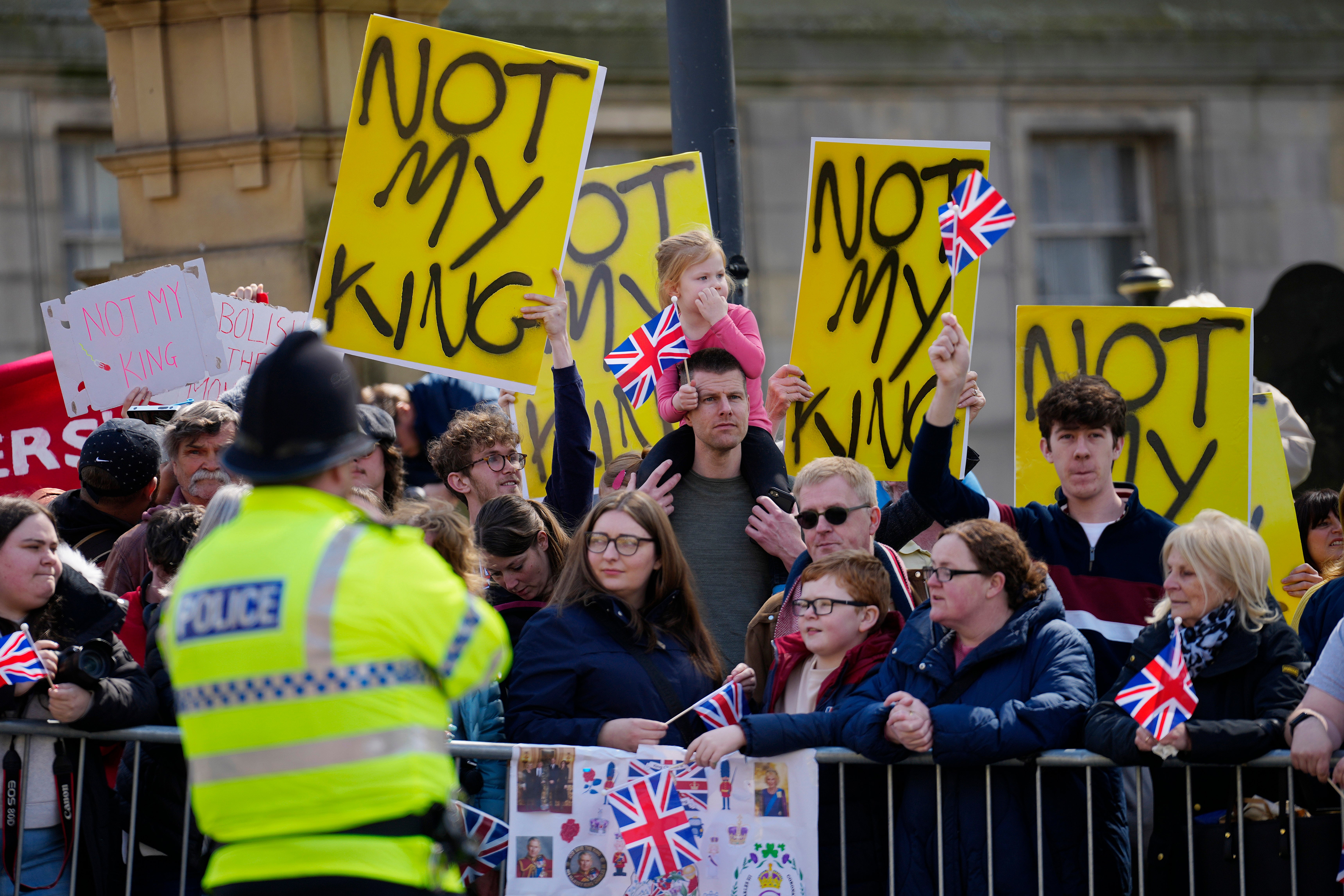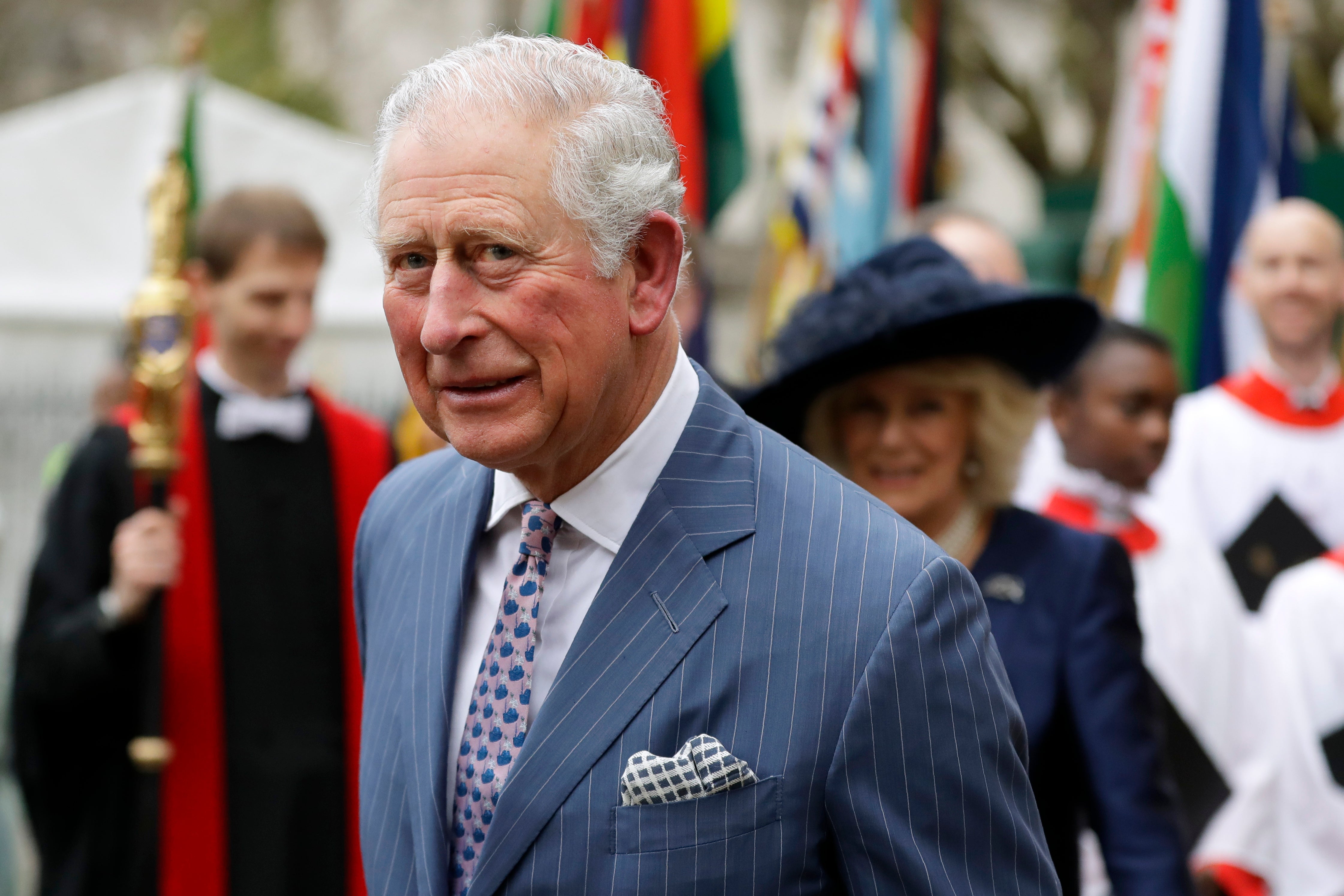
Drones will be deployed as part of the operation to protect crowds celebrating the King’s coronation in Windsor.
Heavy security will be in place around Windsor Castle over the coming days, with police expecting thousands of people to watch the event on big screens and attend a concert.
Assistant Chief Constable Christian Bunt of Thames Valley Police said a “graded security operation” would be intensifying in the lead-up to the weekend.
“We’ve got drone capability, specialist investigation teams, security screening and search for the concert, and vehicle barriers to prevent vehicles causing a danger to the public,” he told a press conference.
“All of these tactics are aimed at ensuring that we can deliver a safe, secure and enjoyable event.”
Security services are working to monitor and address any potential threats from terrorism, crime, or “fixated” people who are obsessed with the royal family.
A man was arrested outside Buckingham Palace after throwing shotgun cartridges over its gates on Tuesday evening. The royal residence was the scene of an attempted terror attack by an Isis supporter in 2017.
On Christmas Day in 2021, a man armed with a crossbow entered the grounds of Windsor Castle and told police he wanted to kill the Queen.

Counterterrorism police have said there are “extensive measures in place to mitigate risk and monitor the terrorist threat”, but are urging members of the public to report any concerns.
While Saturday will see the world’s eyes on the royal procession through London and the coronation itself, which will take place at Westminster Abbey, celebrations will move to Windsor on Sunday.
Just under 1,000 officers are involved in the local operation, with many sent from other regional forces. They will carry out a mixture of visible and covert patrols.
Mr Bunt said that, from Thursday, people would notice an increase in uniformed officers in Windsor – a measure that is intended to act as a “deterrent for any persons looking to disrupt events”.
There will also be armed units, mounted police, intelligence teams, “behavioural detection” teams who look for suspicious activity, and a “range of cover officers” on the ground.

Thames Valley Police have not yet been notified of any proposed demonstrations, but said they were planning to mount a “lawful and proportionate policing response” to any protests.
“We need to balance the rights of individuals to protest with the rights of those attending to enjoy the event,” Mr Bunt said.
“Due to the nature of this event, we will be adopting a lower tolerance level for any disruption – protests or otherwise. This includes action that undermines the safety of the event or poses a serious risk of disruption to the celebrations. We have a range of existing legislation which we can use, but we also have at our disposal the new public order legislation passed this week.”
The controversial Public Order Act has created a new threshold for police intervention against “serious disruption”, allowing for the arrest of demonstrators who break any of the conditions imposed.
Suella Braverman, the home secretary, called for police to “make full use” of the new powers, and hit out at “so-called ‘eco-warriors’ causing disruption and wasting millions of pounds of taxpayer money”.

The Metropolitan Police have also said their tolerance for any disruption “will be low” around the coronation, where they will be deploying live facial recognition cameras to search for wanted criminals.
Privacy campaigners have called the technology “dangerously inaccurate”, after a series of trials of the cameras in London resulted in few arrests and numerous “false positives” in which the wrong people were identified as matches to police watchlists.
Emmanuelle Andrews, policy and campaigns manager at Liberty, said: “Facial recognition is a dystopian tool that violates our rights and threatens our liberty.
“We all have the right to go about our lives without being surveilled and monitored, but this weekend, anyone in the vicinity of the King’s coronation is at risk of having their face scanned by this oppressive technology.
“We have already seen a huge crackdown on protest ahead of the coronation, with new measures brought in this week to further restrict the ways in which people can make their voices heard.”







